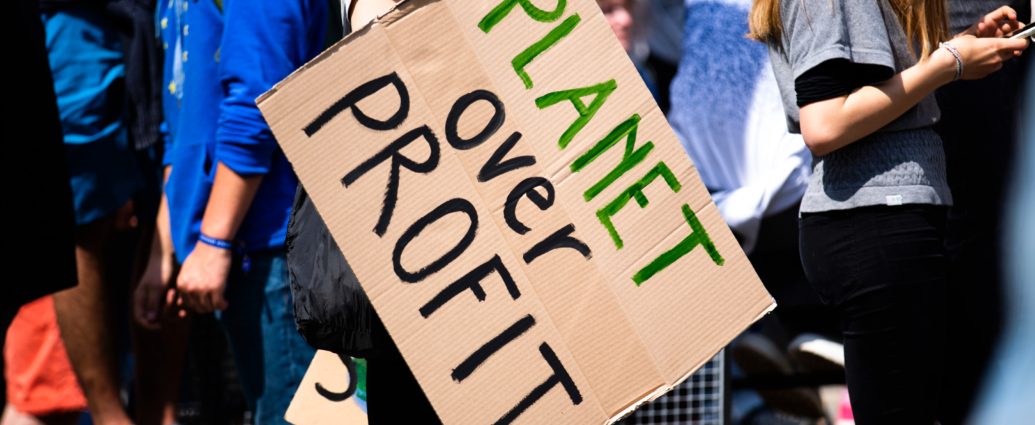On New Year’s Day, Sir David Attenborough released a message which maps out his hopes and predictions for 2021.
In the video for the BBC, filmed from his home and cut together with shots from his new documentary series A Perfect Planet, the broadcaster warns that “we are experiencing environmental change as never before, and the need to take action has never been more urgent.”
This fact is highlighted in A Perfect Planet. The series demonstrates how forces of nature including tides, sunlight, and volcanoes work in harmony to promote biodiversity, but shows that the earth’s natural rhythms are being set off-kilter by climate change. Deforestation, bush fires and the melting of ice caps have a devastating impact on creatures all the way from whales to the smallest insects, leaving them homeless or without food, and unless we halt global warming, several species may be lost forever.
The damage so far
In A Life on Our Planet, Attenborough’s biographical film released in October 2020 on Netflix, we are told that humans are currently emitting 100 times more CO2 than all the earth’s volcanoes put together. We are releasing the gas at a quicker rate than any of the prehistoric volcanic eruptions that led to mass extinctions in the past.
Total animal populations have more than halved since the 1950s, and humans now account for over a third of the weight of all mammals on Earth. Another 60% are farm animals raised for us to eat – non-domestic animals, including everything from mice to whales, account for just 4%. Every year, we cut down as many as 15 billion trees; 30% of fish stocks have been depleted to critical levels, and summer sea ice in the Arctic has reduced by 40% in the past 40 years.
These staggering statistics will only worsen if we don’t rapidly change our habits. Attenborough predicts that by the 2030s, the Amazon will become a dry savanna, and that the Arctic will begin to experience ice-free summers. By the 2040s, permafrost soils in the Northern Hemisphere will thaw and release dangerous methane into the atmosphere. By the 2050s, the world’s coral reefs will die, and by the 2080s, the death of pollinating insects will prompt a global food crisis. In 2100, the planet will be four degrees warmer, making much of the earth uninhabitable.
Though this sounds anything but cheery, Attenborough’s overall message is one of hope. He says “this could be a year for positive change, for ourselves, for our planet, and for the wonderful creatures with which we share it. A year the world could remember proudly and say ‘we made a difference.’” We have reached a crisis point, he believes, but it is not yet too late to act.
A plan for action
Attenborough says that the upcoming United Nations Climate Change Conference taking place in Glasgow in November will be “a crucial moment in our history”, as delegates meet to agree on mandates that will reduce greenhouse gas emissions.
Attenborough believes several things need to happen on a global scale in order to halt this damage. First, we need to slow population growth, which can be aided by broadening access to healthcare, bringing people out of poverty and allowing children, particularly girls, to stay in school.
Shifting to renewable energy will be vital – more countries need to follow the example of Morocco, which is set to be carbon-neutral by 2050.
We need to promote biodiversity by introducing no-fish zones in order to allow fish populations to replenish, something we have already seen on a small scale on the island of Palau and which the UN is currently trying to implement. Forests are our most efficient tool for reducing carbon levels, and so we must stop destroying our forests for crops like soya and palm oil.
A message of hope
Although many of these necessary changes must take place at government level, there are many things we can do as individuals.
“As we make our New Year’s Resolutions, let’s think about what each of us could do, what positive changes could we make in our own lives,” Attenborough advises.
One of the most impactful changes an individual can make, he says, is to shift to a largely plant-based diet; if everyone on earth ate a mostly vegetarian diet, we would reduce the area of land needed for agriculture by half. We should also reduce electricity and food waste, and think more carefully about the products we buy and whether forests have been cut down to make them.
These changes may not seem like much, but Attenborough believes we can look forward to a “brighter year ahead” if we act now. He thinks our combined reaction to the challenges of Covid-19 “has proved that when we work together, there is no limit to what we can accomplish.”
Alice Hiley
Featured image courtesy of Markus Spiske via Unsplash. Image licence found here. No changes were made to this image.

